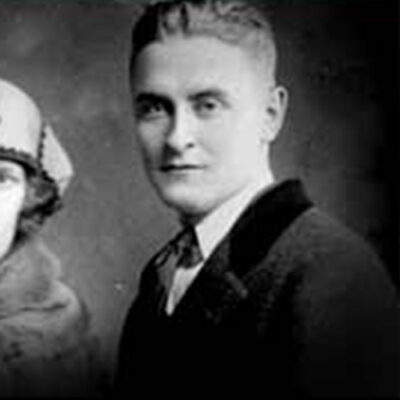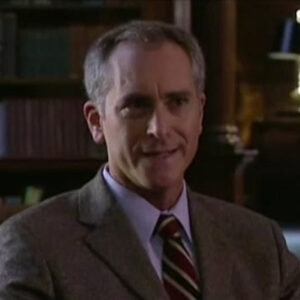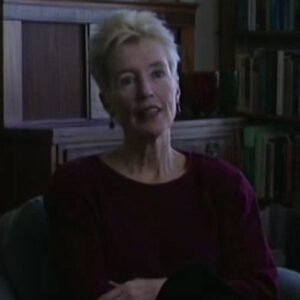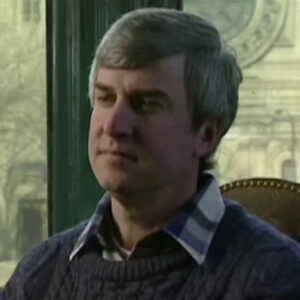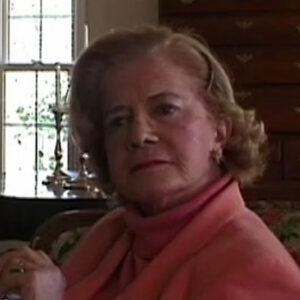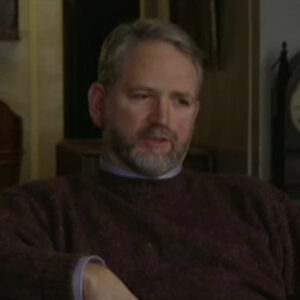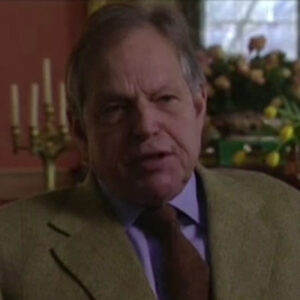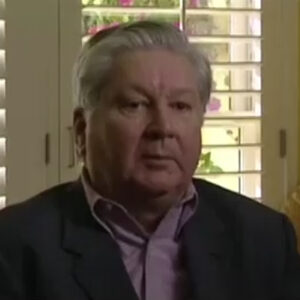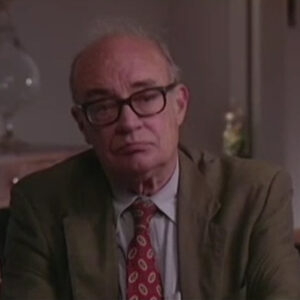Speaker Scott having never met him. Obviously, I have this sense of him being taking an intense interest in certain people, I don’t know what criteria were for those people and wanting to kind of approve them, you know, is that and I’m taking all my questions out of here. Yes. Is that an accurate. What was your sense of that?
Speaker My feeling is that Scott and there’s almost a drive to to encourage people and as they did with his daughter Scott, or or blended with kilogramme in which he really put even a great deal of pressure on them to to learn. He was very concerned with their advancement, with their improvement. That was definitely an interesting side of side of Scott to work in a very, I must say, in a kind of constructive way to want to improve the people that he is positive that he liked.
Speaker Could it be could he be overbearing about this aspect of his? I remember Eleanor Turnbow or one of them telling me that it’s a tennis lesson from Scott Fitzgerald as a child, sort of an hour in hell. You had to have everything balanced or was that not your.
Speaker Well, I. I didn’t feel with myself, but I butt in and more frankly and in reading about it and and and talking to Francis as well. And I think there’s no doubt that especially with Scott, that he he overtrained was Scott. He was he was over overanxious to make sure that she lived up to a very, very high standard, a standard that it would be difficult for almost anybody to meet in in that way. I guess you could might consider an overbearing. But with Sheila, he was not so much overbearing as really he did put through kind of a college course. He was a mentor in a way that she, as far as I can tell from talking with her, she appreciated that she felt that she did need to develop intellectually and that she benefited by the quite arduous reading class that he set up for her. So I think there were different layers of from being overbearing with so many was most concerned about, like Gary just simply being involved as as a good educator with some someone else. He was a natural born teacher that he would he if you not been a great novelist, he would have been a true professor at the university. I think I really do, because he really he really loved to teach.
Speaker And was his reading, was his reading, in other words, his sense of literature, you know, did it was something that came naturally in his frame of reference or was it self-conscious or was it his own college of one?
Speaker I mean, he yes, he he was it’s it’s clear that Scott was really a I would say he was a student, but a. Who had matriculated in asone his own college, had won the title of the book that Sheila William wrote describing the educational process, he was his eyes and his polls were very open to very open to learning of anything new, yet an intense curiosity. And then in the in the in the late 30s, when I knew Scott, when when the whole trend among most young people was toward the left and and almost everybody I know considered some of them a budding Marxist, Scott also was reading Marx. I was amazed when they did come out to see him and say no. And he was reading the I think it’s called the 14th rumor of Karl Marx and the and and quite fascinated with it and talking about how a new a new age, really, that you had to analyze the the the economic structure and the relationship economically of one character to another and so forth.
Speaker It was it was very, very it just I said somewhere that that that Scott was the eternal sophomore, that he was not alone, not in a pejorative way, but that he would come across something and become so enthusiastic about it that I found it almost heartbreaking. You would read he would read Spangler’s decline of the West. And then immediately he had to he had to talk about it. He wanted to discuss the the theories of Spangler, how it related to what was really happening in the world.
Speaker It was an eternal student in that way, very, very, very, very open to to any new new ideas. The wanted to keep up. I felt. I mean, I knew.
Speaker And I don’t want to over read into our reading that we’re talking about here, but were you at all surprised here with Scott who both aspired toward this sort of glittering East Coast old money idea in his youth?
Speaker Yes. And simultaneously saw through it? Yes, the core of it, it seems to me. That’s right.
Speaker But if you could help me with that, I thought that if that’s true about him, that that paradox. But politically, I guess I’m surprised even now to hear that he was reading Marx.
Speaker Well, I found you know, I found Scott. I was at that time very left. And and I was reading Marx also not so much Marx as much as in terms of Marx like John Sprayberry and the coming struggle for power in those books. And Robert Prefilled people, the world would in a way popularize Marx.
Speaker In my talks with Scott at my first meetings with him, I was surprised at how, how and to what extent we really agreed that what was happening in the world about what was happening to the the underclass, but the need for improvement in the lives of the working class. All of that stuff was really without being on par with any party, the socialist communists or anything. He was his sympathies at that time were, I would say, definitely on the other side of the left in then I think he had been influenced a good deal by Edwin Wilson, the the very noted the American critic who while being, I think rather anti the third international was was definitely, I would say a leftist, his approach to society. And Scott was very, very much influenced by by Edmund Wilson is the and that I feel that Hemingway was a sort of literary God in a way. And that and Wilson was as his in a way, his social conscience. But he was also very, very concerned with the rise of fascism and the threat that that Hitler presented to the world. He went there every day and kept in his mind, close in touch with that. It was not at all only the isolated, dreamy poet he was. His mind was was very tuned in to what was happening day by day as as we were moving toward the resolution with him in the Second World War. It was quite political in his approach.
Speaker F. Scott Fitzgerald, the writer, just as a writer, how did how did you encounter him for the first time?
Speaker Well, it became more of a Scott Fitzgerald and lean in in college and I think. I know about him a little earlier, just before I went to college, my my father, Bill Fehlberg, even though he was head of a studio, had started out as a writer and a journalist and was always interested in writing. And our house was something of an aberration in in Hollywood because it was white literary. And my father used to read every Sunday morning, he would read aloud from from Dickens and Goldsworthy and we would go there and we went to Melville. And in the course of it, I had become aware of the script as Gerald, but I didn’t really get closely acquainted with his work. And until I went to Dartmouth College and and and started reading a great deal. And and finally, in one course in sociology, I was able to. We had a concept we really sort of made up ourselves called the sociology of the American novel and and and that was just a small group, sort of a seminar of sociology honors we read on. Hemingway and and does Brussels and and and, of course. Scott Fitzgerald and we read everything that was at that time in front the the early novels and of course, The Great Gatsby and generally the nights and the short stories, the wonderful short stories. So by the time I met Scott in 1939, I knew his work very well.
Speaker What happens? I know you said so this before, but as if we had what happened?
Speaker How did Scott Fitzgerald first come into your life or you into his well, in month, Scott.
Speaker Tamen.
Speaker Into my life in a most unexpected and an even startling way, want to wager? Our producer had gone to Dartmouth College and and I was a recent graduate. I was only a few years back in Hollywood working as a young film writer. And so it seemed sort of a natural fit for Walter Winchell to ask me to write this film he had in mind on the day after the Winter Carnival movie about the carnival. And and I wrote a treatment and and there and winter was pretty critical of it. And he thought I needed help. And he told me that he thought he would put another writer on it. At that time, it was kind of standard procedure. Very often you wouldn’t get fired, but they would add somebody else. There was a lot of writing in tandem this way. It was a very odd thing to look back because the people didn’t know each other at all, would suddenly find themselves in an office as collaborators on the screenplay. And so he sent another writer, one and I and I said, who? And. And. Walter Winchell said F. Scott Fitzgerald and I looked at him and I really, really thought he was just putting me on, I thought just teasing me.
Speaker It was like they were putting Goldsworthy on it or asking. Well, I mean, it just seemed to me to be so far fetched. And and I had I had seen Scott just in passing. I didn’t know him, but I had seen him three or four years before, oddly enough, at the opening of some place downtown Los Angeles when I said Scott Fitzgerald is the dead and.
Speaker And when you said nobody is not is right in the next room reading your treatment, and I thought and I thought, oh my God. And so and he asked me to go in and not enough people. I guess being a big, important producer, he didn’t actually walk me in. He just said, just walk in and introduce yourself. And I walked and there was God just on the last two or three pages of these four bedraggled treatment of mine. And that’s how we met. I, I introduced myself stammering a bit as I often do. And I said, well, I just finished your your treatment. And and then he said, I think it’s very good. I said, I know it’s a bit of a joke. I know it’s not very good. And so I said, well, let’s go out for lunch. And so we went. To the Brown Derby and on one street and and that was the beginning of a first and an unbelievable ordeal in terms of our trying to write this poor winter carnival. And in the course of it, in the course of it, I liked him enormously. I liked him the first day and we got along. The old fashioned word is famously we really sort of clicked. We were we were sort of amazed that these different generations, contrasting generations of the 20s in the 30s, we were we were surprised at how many things we had in common, how many things we were interested in. And it was a wide range from football. I was very interested in football. So as I am and I was rooting for the USC Trojans and all of this and followed it to it, to our concern about about Hitler and Mussolini and fascism, all kinds of things to the treatment of writers in Hollywood. They just a dozen different subjects tumbled out. And we thought that they for a long time at lunch I was. And as I would soon become Lee, the pattern for this relationship, I’m going to Carnivàle. We tend to talk about almost everything else except when the colorable because it was painful to talk about. It wasn’t fun. It was a it was a mechanical idea. It’s like something that really comes out of you that you want to write. We were both running at. He was running it for money. My mother was check and Scott received quite a lot of pretty good signs. I think it was fifteen hundred dollars a week for the project. But anyway, one thing that struck me right away is that I. I told Scott that that I was amazed to be with him. I never thought I’d be actually when I was back at tribal reading his books, I never imagined I would be sitting at a lunch booth at the Brown Derby. And I told him that when I told about The Great Gatsby and also I loved tanzanite. I still love that book. I love to read it. It’s just so, so rich. And I have a copy of in my office at once. Well, I’ll take that book out and just read wherever I open it and find that I just can’t put the damn thing down. I just read on and on and it tells me away from my work. So when I told Scott this, his reaction was, I’m I’m really I’m really surprised that anybody of your. Generation knows of both. He felt he felt forgotten and he felt neglected. And in a nutshell, the very first day, but in the course of our many, many talks, he. He told me how I had forgotten how he felt and he said, you can find a copy of my book in a bookstore in in Hollywood. The books were basically basically out of print. And and he also told me that he asked me. Yes. We talked all that week, every day meeting in the in the studio office. We’d meet around nine, 30 or so. We just talked all day. We went out for lunch. We talked, we came back, we talked. We talked hours and hours and. He he asked me one day.
Speaker How much?
Speaker I would guess his royalties were for the last for the previous year. And remember this vividly, I could never forget it and asked me to guess, and I knew it from the circumstances and I knew it couldn’t be enormous. But I said, I know six, seven, eight hundred dollars. And Scott said, thirteen dollars. He said thirteen dollars as royalty for the year before. And so he felt he felt forgotten, he felt overlooked and kind of repeating myself. But I think he was really amazed that I even knew who he was, the way I acted, the way I did to his name, really. He expected a younger someone from the younger generation to know all about about Steinback and. And James Farrell and the other two men say the writers of the Clifford Odets maybe and the wonders of the 30s, and he had this feeling that the. They were no longer considered in that in the classroom and was out of sort of out of the bowl, and he he actually not only taught forgotten, he was forgotten. He was forgotten. You know, she was. Yes. Won. He was in the street. No, no, no. If it was a small group, it was a small, wild group. But he was a forgotten academically. Then start teaching teaching him he was abused. I would say correctly, his books, even if they read them, if they discussed them at all, they put them down as kind of a relic. He was treated as a sort of a relic of the past. And they could, I think, blame the blame the the the emptiness, the failures of the 20th factor that it seemed in retrospect, especially in the hard in the hard times of the Depression as a sort of a careless and frivolous time. And and since Scott had been the really the very much the sportsman so identified with the Jazz Age and that one. And when that was over, in a way, they felt the threat was over, too. And so even he was forgotten. And it is true that I finally get my friends to get books of cigars in Hollywood bookstores, and they were not there. You couldn’t even had trouble with secondhand bookstores, really. And and he he had challenged me and he said, you were right. I said it’s hard to believe it is when you go around trying to find funny I books. I mean, they were they were not on the shelf and they were not in people’s minds. I actually wrote a I wrote the 10 writer friends of mine and and asked them to read Scott. And to tell them if they felt that way, to tell them how much they admired his work as a as a way of sort of. Giving him a boost. That’s Michael Blankfort, the novels now passed away, but it won’t be the last time I ever saw him about my wedding to Blankfort. And he said he did write to Scott. And I did tell him I much admired his work. But that’s a low Waterlow effort, was that I would have to feel I was not there. But I don’t want to sound as if I’m the only one as. There were people like John O’Hara and Governor Parker and a small group up there who really knew.
Speaker Knew how good Scott was and. They. So through this whole.
Speaker Falling in love letters have about being in in favor of falling out of favor, and all of a sudden they were there was a group of really no know how good Scott was.
Speaker Would the Mongols bring in top writers, no matter how famous the way they might be?
Speaker Unless Leonardo da Vinci defined a set where it really was that the practice of the day for people who just can’t imagine such a thing?
Speaker When when when someone came in the LA. The studio heads panicked because they all the worries they had were silent continuity wearers who knew the form of film but had never written. Dialogue and they were in a panic. My father was the head of Paramount Studio then, and he really for a night out over the over the east of New York. He told me it’s an office to find as many playwrights novels as they could. And our game, Ben Hecht and and some people who have also forgotten now, like a bunch of men who were Children of darkness, a wonderful play that can’t be just an endless list. Every studio did that. They brought out people who never didn’t have didn’t have a glimmer as to how to write the screenplay. But we found themselves in the studio Monday only on the people signed up for a year on a weekly basis to write screenplays. And and even though even though in the mid thirties even discussed having fallen out of favor of a cardboard sign that at MGM for a year. But the the town was almost like overnight full of famous writers. Bill Faulkner was out there and whom we we know Stanley was bookshop on and on Hollywood Boulevard was a hangout for the miners. They the Stanley brothers had a back room, famous back room and. And a big jug of terrible orange wine, I think he made it himself. And you would look around that room and see one of the best known weather then in America and and maybe some of the and the Thomas Mann wasn’t there, but Thomas Mann was actually in town. He would have become a really of a very short period, a kind of a literary center, you might say.
Speaker How did you guys do getting back to our lunch luncheon after the first book became part of the ritual, I think. Yeah, I noticed you have on your wall F. Scott Fitzgerald Social Security card, and I’m imagining that maybe he dropped it. But how are you doing on the drinking front and how is Scott doing? And what was that whole ritual, which I guess you were not used to with him?
Speaker Well.
Speaker The. During the during the week that really got cut, and I meant every day Scott was not working and I might have had a beer or something, but we weren’t really drinking. What happened was that that was the end of the week when to suddenly announced that we were to go with him to. They government to Kabul and and got. Let’s tell them about it, and he said, well, I really don’t think I need to actually go and see the carnival in.
Speaker All right. I mean, he knew enough about the college weekend parties, but he didn’t really have to travel 3000 miles away. And and I don’t know. It became rather little saying that he would really prefer not to go, he said, but could go and get another. But but just out of I mean, he was at the winter carnival two years ago as an undergraduate, whatever local color we need, he can supply.
Speaker And and what became whether Stern. Anything else. Got it. I insist. Insist that you go and and Skunk very reluctantly, very reluctantly came along on the trip for us. What happened was inadvertently my fault. But what really happened is that my father was excited about it. He was not one of us who had forgotten Scott Fitzgerald, and he was very impressed that I was working with him. And he went into the plan. We left from Burbank and he brought to the plane to bring bottles of Mum’s champagne as a celebration for our journey.
Speaker And we got on the plane and started talking. And then we decided to pop the first bottle of champagne we talked about that night and those days, the trip was endless. And people, younger people today just have no idea what air travel was. We would land twice for refueling, I think 16 or 17 hours. It was a very arduous trip. Some of the planes even had sleepers on them. And so anyway, we’ll open a bottle of champagne and we talked and we talked and we we talked a lot about we compared riders and very much a feeling of of. Of his his letter to my brother that his death admired his politicians and my politicians, we ran them whole list of of the of the differences we talked. One, after he finished the first bottle of champagne and then after refueling, I think it was Kansas City, but this time we’re feeling pretty good, both of us. And we opened the second bottle of champagne. And then this little one story, and I don’t feel I should pull it together because it’s and put it on because I realized how detailed I could get about this, because every step of the way, every minute of it is so vivid with me that I can describe it almost minute by minute. But I want what happened was that we can’t. To the Hotel Warick and. I hadn’t really since college, and I have some good friends, I was really missing, and so I asked him if he’d mind if I went out for an hour, just saw him, and he came back and got to know. Sure, go ahead, I’ll be I’ll be working, I’ll be trying to figure this out. We could not get a story line for this movie. We could not get a line on it. It’s hard, but it’s not at level if it’s one was it was some questions, the whole thing and all of it, that we just couldn’t do it. And then so anyways, can’t be thinking about it. When I came back, I felt I’d give anything to find them. I found. Notes written on stationery of the hotel in which he said, well, you shouldn’t have left me, pal, because I went down to the bar, pal, and then I was waiting for you, pal. And then I came back to the room. Well, I remember that instead of punctuations come to the period that pal I made down and the bar and I said, yes, he was here. I described him gone. I won’t go through that. I found him wonderful the night we went through a very long night, hard night and and and drinking was involved in it.
Speaker And he said, I will serve it for drinks. And and then we got on the on the train on the winter carnival, spurtle the whole train full of young girls.
Speaker It was just an amazing thing, just nothing like the Winter Carnival special in those days. It was the men’s men’s college going up in the north woods of New Hampshire.
Speaker And this was like a back of. Winter wanted the winter at a Dartmouth and and all of the dates were on their way up to the carnival to meet there, they both the the daughters, daughters, undergraduates of the entire train, seven, eight, 10 cars full of young attractive. Carnival dates, and I remember that when it was all excited about this, it was very stimulated by this train full of young ladies and. And he wanted to want to hold the whole train with them, and Scott didn’t want to do that, and by the time Scott had a little bottle of gin, I couldn’t figure out where he got it because I was with him all the time, I thought. But I did in his overcoat. He looked rather bedraggled. And it’s sort of an old and old. It looks threadbare. Tweed’s overcoat. And and I’ve got what I looked at, Scott. And as for the dog, and then he called me aside. And he said he said he has been drinking and the way one might always protect another, I said, well, he said he’s had a few drinks and then and then Walter dropped this on me. He said, son of a bitch. He said his agent gave me his word that if I if I hired them, nobody wants to. Nobody wants to hire me. It’s not a finished out here because he’s an alcoholic. And I felt annoyed because I felt he should have warned me that nobody nobody warned me about this. No one said, but you can’t take a drink in front of Scott because. Because once you start once it starts, you can’t stop. Nobody told me. And my heart sank because then and I think Walter said something like that is the most notorious once it starts breaking. And I think and I thought God would have found a way up there. And we don’t have and we don’t know what we’re doing. We don’t have a clue as to what to tell these people. And we are in big trouble. And that was the in a way, that’s the beginning of a long story that I that I described it to in a different standard in the book that I did more or less based on this experience in the quantitive of which I realized. For a fan, what to ordeal it was for Scott and to jump to the end of this chapter. We finally got a fly by winter, fed up with us and able to do our job and both of us fully looked. Was younger. So I was stronger and didn’t look as bedraggled. Not quite. Maybe as Askhat the. One out of 10, one out of Hanover, back in the city. We look we look so disreputable that we couldn’t get in a hotel, couldn’t get that is true.
Speaker I come back and not back in the work and I realized how attractive they all are.
Speaker They took one look at us as if we got a reservation and we said, no, I’m sorry. But they all were trained and they all said the same. And at that point at that point, Scott turned to me and said, But I know a place where they will take me. And that’s the doctor’s hospital. And that’s and that’s what I took from there. And they did take him and he was there for three or four days. And then once he was in shape to travel, he and Phil Gramm had come with us. Another story I didn’t realize that I didn’t know that Philip was with and I didn’t know that Sheila was with God, although she had been on the plane, I thought. But they didn’t sit together. She was in the back somewhere. I just anyway, when I was in shape to travel, Philip wanted back to back to Hollywood and and then and then he stayed on the wagon for quite a while.
Speaker So when he was beginning to for that, there was no no end to it. It would end in in in the hospital. But when he was not drinking, he was just fine and and and and clear as a bell and and and professional and and working hard.
Speaker Could you just tell me?
Speaker In a short form, how did you guys get fired and where were you and how did you get fired?
Speaker On the on the second night in Hanover, incidentally, we were living in.
Speaker And it’s crazy when we got to the home of Iran, they had forgotten to book a room for us, they had a room for everybody else, for the whole crew, the cameramen, the cameramen in the script girl. But they had forgotten, never understood. But that’s true for the writers. And Scott was very funny, by the way, through this whole and as he was, he would make some excuse me, sharp observations.
Speaker And when I said that, there was no room for us outside, but which as you know, as as the spin writers, I think we should have expected, Ladislav, that pulls up in an attic, which had one double bed in it. And like a chair, it was not used. It was not in use of the room that guests were occupying at the hotel. And that’s what we said anyway. I guess on the second night, we went down to the coffee shop in the land of Iran and and Afghanistan was kind of flying. But we just we just had a dismal, dismal failure presenting our ideas to the son of the Dartmouth dean and some of the heads of the of the English department, which Wanjiru had arranged for us in the lounge of the inn. And and we were obviously in enough shape to present anything. And there were no one. They asked Walter Scott to tell his story and Scott offered to be a colleague, killed another man when Scott said, well, what did you tell them? And. I don’t know what it’s like having been raised in Hollywood when I’ve been in enough of those three countries, seen enough fakers and con men have to wait for the story that they had presented to my father that I would know would would never work. But anyway, anyway, after that, we went to the coffee shop of the Vietnam War, Lent later about 10:00 o’clock, I think. And it’s got kind of a brilliant. It’s a realistic thing, it’s I could describe it in detail, I use that at the end of the play of the Dozen and the pretty much intact as Scott as Scott said it, that might if it was a work and it was beautifully filmed, but it didn’t have anything to do with solving a problem. And then that’s when I started laughing. We got kind of we were hysterical, really, and that’s when we went around the front of the van and ominousness. I remember dragging through the snow, very deep snow that year as we came to the front of the our doorstep going up to the porch of the end. And that was wall to winter, looking 10 feet tall, immaculate and white tie and a top hat, another one. That black tie was very, very often white tie.
Speaker And when it started.
Speaker He he was furious at us and we because we really struck out with this deal, but the time I I began to realize that what Walter went to was really probably hoping for was to make a big showing with with several of. And neglected, it was he was still a literary name from the past and that we had and we had we had really let him down, but we had and that’s when he said boys. He said, boys, I don’t know what the next train out of here is. But you’re going to be honest, I remember that loan word for word and and that’s when they put a family. On the train, they went out of Hanover about midnight to Manhattan, to New York, and we were on and we were on that train without a luggage. I asked about that. It was I don’t worry about it was just us to get out of town out of sight. And and so we did we because you would fail to do what, even though I know it just won’t because you yeah, we had we had more than liano only Feltl to come up with a subsidy that they call a continuity of the story so that the second unit could show the different scenes as Walter Winchell. He did have a whole crew up there. And I was damned expensive. And we were we had we had failure or a job professionally. But on top of that, we’d done more than that. We had really disgraced Walter Winchell in the eyes of these people that he had hoped to impress. And so it was kind of a double whammy. And I think that that made Walter Winchell so, so unforgiving and so furious that his.
Speaker So after after the great success in Hanover and you guys somehow drive yourselves back to Hollywood, did you keep seeing each other?
Speaker Well, yes. I was Rihad. I guess I guess what I want to figure out, I was the only one who who knew enough about the winter carnival, but he put me on with another young Dartmouth graduate. And what was really touching to me is that Scott would write to me with ideas for the film of little touches and things on the film. I have one of the letters, in fact, that our archive has just showed me a letter that that reminded me if I needed any reminding of the way Scott Wood would kind of loyally stay with us and and and support me. At that time, it was living out in Encino, in the guest house of a of a very successful comedian in Hollywood, Edward Everett Horton. And so I used to go out to safeguard from time to time out out out there. And I have memories of Scott. Racing down the outside steps from the second story, the California buildings very often have an amount of that stairway that would lead to the second story. Now, remember Scott? And he had just.
Speaker Just one of the.
Speaker To put thoughts of reform, Esquire, I would read it out loud, and he was running stories of that time trying to his idea was that he could turn that. Quite quickly, they were amusing, not up to the very best of. The short stories, but entertaining and amusing and nicely done. And if we get 250 bucks, he told me from Esquire, which one?
Speaker And I figured if you could write one a month before sunset, but I’m not sure which house it was. Yeah, but you walked in the door and something kind of remarkable happened as a context of your relationship.
Speaker I’m sorry. Did you mean when he was 11?
Speaker No, I meant when you when he you had he asked you to read something phone. Oh. And you were startled and recognized and helping us with names, names as we go along.
Speaker If we could just a little id that that your. In 1939, after the referendum, I finally got free.
Speaker This winter carnival ordeal. I decided that I sort of had it with Hollywood, had that experience, had sort of done it for me and I wanted to write a novel and and there was something called What Makes Sammy One book about a novel about Hollywood. And a lot of it had gone into galleys now. And this was by now about the last time I saw him. In fact, it was the 1st of December 1940, and I went to see Scott. But this time he was no longer insane. And he was living in an apartment near near Schwab’s Drugstore near Laurel, Laurel Canyon. I got there and he was in band and he was running in parallel, sort of a a sort of a bed desk around him, as I recall. It was waiting there. And and I. I thanked them for a very complimentary sort of sendoff he had written from my book that they were using only only on the jacket, and I told them I’d be back in about three weeks. But what happened was that he then said he asked me if. I’d like to read what he had for the chapter, and that was the first time that was the first time that I learned that Scott was but also writing a Hollywood novel. And I. I read in the opening page of the opening paragraph, I should say, and I was wrong, I was rather startled because. It I had said this, but as an aside, I realize now at that moment of a flash, I realize how it’s kind of been fascinated by my having been brought up in Hollywood. My father, a big tycoon, my sort of inside inside knowledge of the town. He asked me endless questions about I wanted to meet my father was interested in, and he asked my father many questions. And anyway, to cut this short at this at this moment, I, I, I realized in a way why Scott had been so fascinated with with my background. I felt that as I read the first paragraph, I could hear I could hear myself having said to Scott, Scott. I know the outside outside world, world and Hollywood is a very glamorous place, but if you’re raised inside of it, there’s nothing glamorous about it. It’s it’s a it’s a working town, the factory town. It’s a place where they turn out cans of film and instead of tires or automobiles or something else, it’s a company town. And that’s pretty much the tone of that opening paragraph because the narrative is familiar. Who was the daughter of a Hollywood studio magnet? And it’s told through her eyes. And so it has the attitude of an insider who’s who’s also sort of able to look at it critically from the outside. And Scott is sort of look at my face. And he was very sensitive to it and. And he said to me, but I know that the.
Speaker He said, yes, I.
Speaker I did I did combine my daughter’s cry with you in the car, drove off the psyllium, and he didn’t say, I hope you don’t mind, but that was the intent and. I had a funny feeling about it at the same time, I was I was fascinated by it because I thought that the opening was awfully promising of a different kind of a different kind of a Hollywood novel. And I. Don, I would just love to read the rest of it and Scott said book, when you come back, I’ll have another chapter done and you can look at it.
Speaker In retrospect, I don’t know exactly why why he did that off that, but he did, and I know that he had been he been very, very defensive about it.
Speaker No, I didn’t know that then. But I learned soon after that he had been very, very secretive about Hollywood novel. He still needed to work in Hollywood. It still needed jobs if he could get them to see him through financially because he was in desperate, desperate straits financially trying to get one to get through Vasseur and trying to support Zelda in the sanitarium. It was really, really up against it. And he was worried that if if Hollywood knew he was doing Hollywood novel and assuming it might be an anti Hollywood novel like mine, it might it would hurt his chances of getting employment. But but he did offer to have me read. The members wanted to read the chapter that the opening of which Scott showed me was the first chapter. Of his novel In Progress, The Last Tycoon, and it was a book, really a kind of. Fictionalized version of Irving Thalberg, the the at that time, very famous producer at MGM. Boom. Let’s Scott had worked and he was the reigning genius of Hollywood at the time and he had a special godfather, had a wealth of fascinated, tremendously taken with the impact of Thalberg in the book was it was not biographical because it also does an awful lot. It’s got mixed up with the Sjoberg character, Manuel Star. But it was a it was a take on on Hollywood, on the creative Hollywood, I would say that had not been attempted by anybody before.
Speaker And did you have a sense at all that Scott and micronized character here you were you were seeing him for the left, did you did you ever read any other chapter in this novel and using its name?
Speaker Well. For them in in due time? Well, it’s.
Speaker It’s more than just reading the letter. What happened was that when Scott died and he died just three weeks after this last. Than I had with them, and the book was maybe halfway finished. They there was a moment there was witness.
Speaker Consider the possibility of a.
Speaker Of John, our appointment in Samarra, an outstanding American novelist, that John was a very good friend of mine also and a very good friend of Scott’s, we all knew each other well.
Speaker The suggestion was that maybe John and I could take this material and and finish the novel. And there were about two days where we read it carefully. And it’s a pretty fascinating book.
Speaker It was on his way to, I think, a really very successful novel that, well, even as it stands, it has helped to reestablish Scott, that Scott was not the not the burned out case that some people thought he was. And it was obviously growing it and moving forward and would write another outstanding novel. Anyway, for about two days, John and I kicked the idea around and we both decided that it would be it it would be a no win. Situation for us that the style of golf was so completely cut on and the vision was so totally his own vision that that there was no way that we could simply pick it up like a really well run and run.
Speaker One went on with it, and I, I read it from time to time and I’m pretty fascinated with the landscape. And I thought it was very prescient, I think because he is someone who was in a room of epic proportions, the the individual player who was making something that will have an impact on the whole world and that it will never be another.
Speaker It’s almost like the last moment in time. There will never be another. Time like this and and that’s why he called it the last tycoon, and when you look at Hollywood today, that era is totally gone. Huge corporations and corporations that own corporations, only studios, Sony on this one, the left and and it’s now a place where an individual star or famous director may bring that work to the studio and the studio will finance it. But but that time, one man ran the entire thing and were his dreams went up there on the screen where he controlled it with a creative power or influence that. Will never be known again.
Speaker Scott really caught that moment and that, I think was on his way to the world through every piece of work and a very original way of looking at it. Hollywood.
Speaker When did how did you find out that Scott had died the dam way, I’ve put it in a weird way. It was weird to me in December, I think it was a 20th on the date of contact. I was back in Hanover as I was very drawn to Hanover, and I love Dartmouth College and I was back there and I. I was.
Speaker And I was in the Hanover and went right where we had where we had struggled and.
Speaker Suffered and failed, and right in the end, having a drink with the English professor and he said almost casually, in a way, he said Islam film.
Speaker So it’s not too bad about Scott Fitzgerald and said, what’s to it said, let me or that Scott Scott died. It’s in the morning papers. I hadn’t seen the I hadn’t seen it yet. And that’s where it’s gone.
Speaker And that’s when I read Going to Die In. Right there at the end where we had been. Did you go to the funeral? No, I didn’t I didn’t I wasn’t able to go back at that time and I didn’t. And I’ve heard about it from, I think Dottie Plunker, someone told me about it, but I didn’t go. I wasn’t able to be.
Speaker Scott was kind of a forgotten man right before he died. I just have no idea whether his fact of his dying made any impact.
Speaker Well, we were one after that. And we and we read the papers in the papers the next day.
Speaker We and we being friends of Scott Fitzgerald, admirers of conflict, we were stunned and shocked by the tone of the reviews. I mean, but it would be interesting, I think, to check them out. Westbrook Pegler them as sort of a silly boy, part of the past.
Speaker Westphalen for a gallon and almost like good riddance sort of silly writer that was the time was very hostile and that’s what prompted.
Speaker A group of people I went back to live with them, and we’re all shocked by the tone of a review of a review of the obits on Scott and that Charlie Parker and and Ohara. The young, the Hollywood writers, that group that hung out and Stanley Brothers back room, they knew how good he was. They know they didn’t need to wait 30 or 40 years later for someone to tell them they appreciated Scott. And so we then decided that we would ask The New Republic if we couldn’t. All right. All went our own.
Speaker Appreciations of Edmund Wilson in the east of the event is from when I was in college so and married him, I think I, I think William was benign. And so we put out or I. I was. Part of of of a group that wrote a memorial issue in in early February 41 in The New Republic, which was sort of an answer to the to the hostile, hostile press it received them on in the obituaries. They were really incredible. If you go back and look, you’ll find that they were treated as a as a sort of a noble, you know, a sort of a laughing stock amongst them. There was not a sense of no fenthion in those obits in the paper. I think even at times, no sense of what was really accomplished. None.
Speaker Is a crazy question, but I kind of want to ask a couple more of you if Scott could see what’s happened to him. Years and years later. He he didn’t believe in life, had second acts, and yet, you know what? How do you have handled this whole thing?
Speaker Can I think of it almost every day? I mean, somebody not every day, but every few days somebody will ask me about God or call me about Scott Fitzgerald. And there’s a F Scott Fitzgerald society that is very active. I’m constantly hearing from them when the next one, the next international conference will be the one the south of France last fall. And it goes on and on and builds and builds and builds. And Scott would be Scott would have all that money, all that, all that fame and all that sense of of of of acceptance that he really dreamt about every day.
Speaker I think of the irony of it. And it makes me very sad.
Speaker It’s a very painful thing for a guy has to go down like that in in debt and struggling and and the feeling that he’s been forgotten at the same time. I must give Scott one thing I admired about Scott is that even with all the bleeding that he had taken, he never for a moment lost faith in himself. He really believed he knew that he was a very important American novelist. He knew that I don’t think nobody could foresee what where he is today. His reputation is like something. No one no one could have foreseen that. But Scott did for Scott. He never lost sight of his own importance. I mean, he may have felt people that society is unfair, unkind, but within himself. Scott, Noel, Scott, Noel. Good. Was he I all remember saying to me that the bottom is that, you know, baby, I know I really had a big talent. He said I had a big talent and I’ve got enough left for at least. Another few novels, it’s not over if you’re not giving up, in other words, he hadn’t given up and that that faith sustained them. I admire the courage of the guy. I’m not sure I it would have taken what he took, knowing how good he was. He knew that. But that was something I did in the darkest hours. And God knows he had dark in his darkest times. I think that sense of what he was like, we wanted what he could do that that sustained them and that that kept him going to the last minute. I as he was running, he was running at the last minute. Joe described how he was over there and standing up somewhere and talking and went. But he was working on the on the spot. And then that lives I mean, left I going along with all a body of work. Is there. Is there.

